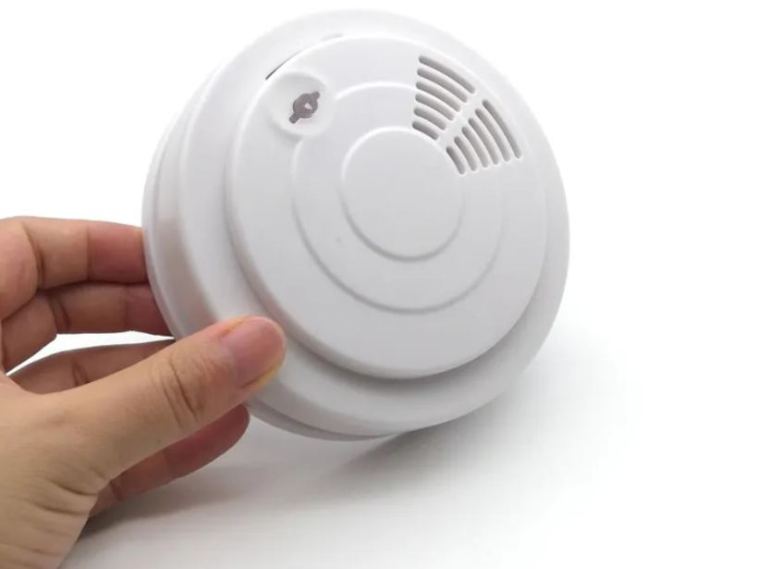- Like
- SHARE
- Digg
- Del
- Tumblr
- VKontakte
- Flattr
- Buffer
- Love This
- Save
- Odnoklassniki
- Meneame
- Blogger
- Amazon
- Yahoo Mail
- Gmail
- AOL
- Newsvine
- HackerNews
- Evernote
- MySpace
- Mail.ru
- Viadeo
- Line
- Comments
- Yummly
- SMS
- Viber
- Telegram
- JOIN
- Skype
- Facebook Messenger
- Kakao
- LiveJournal
- Yammer
- Edgar
- Fintel
- Mix
- Instapaper
- Copy Link
Introduction
Every residential and business building has a smoke alarm in case of a fire. Ionization and Photoelectric Smoke Detectors come in two different varieties. Although the effectiveness of these smoke detectors kinds is undeniable, there is considerable disagreement on which should be installed in order to protect lives.
Photoelectric Smoke Detectors
Photoelectric Smoke Detectors have an infrared, or ultraviolet light source are all components of a photoelectric smoke detector. In some types, the light that the light source emits travels through the test air to the photosensor. The circuitry measures the received light intensity and emits an alarm if it falls below a predetermined level, maybe as a result of the smoke. The received light intensity will be diminished due to scattering from smoke, dust, or other contaminants. These devices are also referred to as optical detectors.
In other types, usually chamber types, the light is not focused on the sensor, which is not lit up when there are no particles present. The light is scattered and some of it reaches the sensor, setting off the alarm if the air in the chamber contains particles.
Ionization Smoke Detectors
A radioisotope is used to ionize the air in an ionization smoke detector. Some of the ions in the open chamber will adhere to any smoke particles that happen to enter it, making them unavailable to transport the current there. When a current differential between the open and sealed chambers is detected, an electrical circuit sounds the alarm.
Dual smoke detectors
Ionization and Photoelectric Smoke Detectors are both used in dual smoke alarm technology. Because they offer coverage for both smoldering and blazing home fires, these are regarded as offering the finest protection. Furthermore, you won’t need to install two different kinds of smoke detectors around the house.
Differences Between Ionization and Photoelectric Smoke Detectors
Ionization smoke detectors react far slower to fires in their early, smoldering stages before they burst into flame than do Photoelectric Smoke Detectors.
Ionization smoke detectors react to rapidly blazing fires a little quicker than photoelectric smoke detectors.
Inhaling smoke rather than flames is the primary cause of death in most house fires. Residents have a significantly better chance of escaping with a faster-responding smoke detector. Ionization is more likely to be purposefully inhibited since, according to their mechanics, it is more likely to cause false alarms.
What Kind of Smoke Detector Is Best For Our House?
Because most of our domestic fires are started by appliances or have electrical origins, photoelectric smoke detectors are more suited for our homes. Such fires frequently start out with a lot of smoke before switching to an open flame or a smoldering fire. To sum up, photoelectric smoke detectors are better at picking up smoldering flames.
Tips for Setting Up Your Smoke Detectors
Although choosing which sort of smoke detector to install is crucial, you also need to take into account how unexpected fire can be. Following the manufacturer’s recommendations for where in your home to install your detectors is the best advice in this situation.
You will also need to adhere to any local building regulations. In addition to installing at least one alarm on each story of a home, the Fire Department, recommends that households have smoke detectors in every bedroom, corridor, and living space. Also, it is suggested that smoke alarms never be placed in the kitchen because cooking might easily set them off. Also, since they will cause the detectors to malfunction, smoke alarms should never be installed on or next to an air conditioning vent.
Conclusion
It is crucial to have fire detectors in the house. Every day, smoke alarms prevent fatalities. It is crucial to constantly keep in mind to check your alarms at least once each month. Battery replacement or alarm replacement may be necessary. Alarms often last for roughly last for up to ten years, which is important to know. It is also essential that you substitute dead batteries in smoke alarms as soon as possible and most smoke detectors are intended to have an effective battery life. This means it is rare to completely replace a smoke detector after that. The “dual” detectors or a combination of alarms offer the best level of protection.
About Theresa Duncan
Originally from Detroit, MI, Theresa has been offering health and fitness advice for the last 30 years while working as an engineer. She decided to turn her passion into a profession, and finds nothing more satisfying than helping others reach their health and fitness goals.

